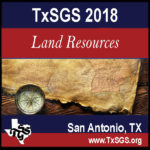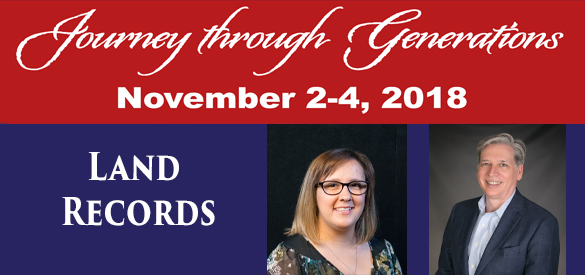 Land is as much a part of our ancestry as the people who lived and worked on it. Land records represent one of the most underused genealogical resources.
Land is as much a part of our ancestry as the people who lived and worked on it. Land records represent one of the most underused genealogical resources.
Learn how to take advantage of these rich resources to trace your ancestor’s journey.
Learn more about the conference, topics, speakers, and workshops. Register online!
Check out topics by speakers Laurel Neuman and Kelvin Meyers on using land records.
Land
Friday, 11:00 a.m. – Land, Lots of Land: Using Land Records to Find an Ancestor, Kelvin Meyers
Because Americans were so “land minded,” well into the 19th century over ¾ of all males who lived to maturity owned land. Consequently, land records exist from the beginning of the first permanent settlements in America. Frequently one of the few identifying records from this early period, the older these records are, the more genealogical data there may be to obtain. (Intermediate)
Friday, 5:00 p.m. – Mapping Your Ancestors – Using GLO Maps and GIS Viewer for Genealogical Research, Laurel Neuman
Learn how to research your early Texas ancestors in the records of the Texas General Land Office, beyond the land grant records themselves. This presentation will include a brief overview of the records housed in the GLO archives, as well as an exploration of how to use the 45,000 historic maps and sketches in the GLO, along with the GLO Geographic Information Systems (GIS) Mapping Viewer, to find your ancestors. (Beginner)
Sunday, 2:00 p.m. – Territorial Records, Kelvin Meyers
Learn about the Territorial Records of the United States, what records are available, how to access them, and what can be found for ancestors in these areas during the territorial period. Also discussed are the three major collections: The Territorial Papers of United States, The American State Papers, and The Draper Manuscripts. (Intermediate, Advanced)
Follow our Blog | Subscribe to our eNews | Check the Conference Site
Questions? Email conference@txsgs.org.
Join the conversation @ #TxSGS2019

